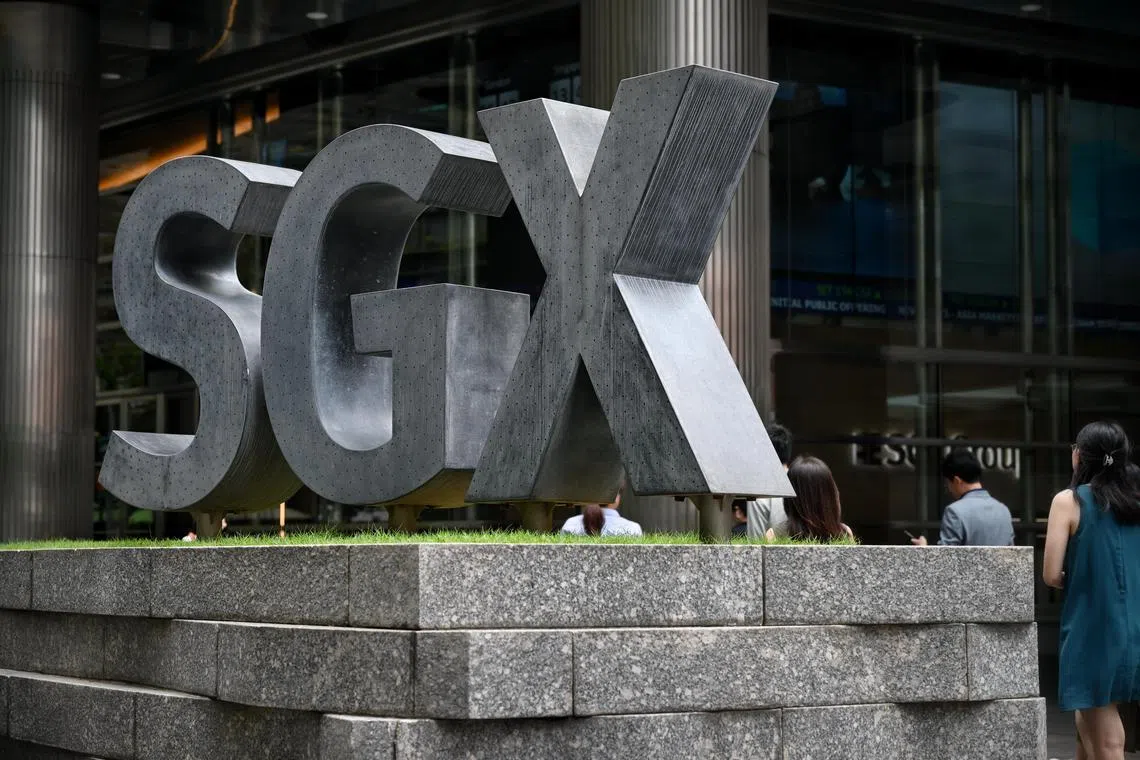Singtel rebounds but DBS continues slide; STI down 0.5%
Sign up now: Get ST's newsletters delivered to your inbox

Singtel was the top gainer among the STI constituents on July 18, more than recovering from the 1 per cent decline the day before.
PHOTO: ST FILE
SINGAPORE – Increasing fears in the United States that an upcoming Donald Trump administration might begin to erect punishing tariff barriers hit Wall Street and shares across the region on July 18.
The immediate effect was to send the big tech firms tumbling in New York overnight, driving the Nasdaq down 2.8 per cent, its biggest one-day decline since December 2022.
The S&P 500 fell 1.4 per cent in tandem, but the Dow Jones Industrial Average added 0.6 per cent to reach a new high, another sign that investors are steadily moving away from high-flying tech stocks and into industrials.
The effect here was to leave the Straits Times Index (STI) at 3,471.16, down 18.41 points or 0.5 per cent. Losers beat gainers 285 to 277 on trade of 1.2 billion shares worth $1.1 billion.
Local issues played their part as well. Singtel topped the STI’s performance ranking, gaining 1.3 per cent to close at $3.06 – more than recovering from the 1 per cent decline on July 17.
Phillip Securities Research analyst Paul Chew has downgraded the stock to “accumulate” from “buy”, citing its recent rally. Singtel is up 23.9 per cent in 2024, making it the second-best performer on the STI after Yangzijiang Shipbuilding, which is ahead 57.7 per cent.
The three banks ended in negative territory. DBS was the biggest loser, down 1 per cent to $36.90. OCBC Bank lost 0.7 per cent to $15.12, while UOB closed 0.8 per cent lower at $32.70.
Jefferies has downgraded its calls on OCBC and UOB to “hold”, but retained DBS as a “buy”, noting that the lender’s price-to-book premium is justified by its return on equity.
The brokerage is less optimistic on Singapore’s banking sector. “With rate cuts likely coming, the franchise improvement story already well known... Singapore banks will likely be in a position to defend earnings rather than drive as strong growth as before,” it said. THE BUSINESS TIMES


